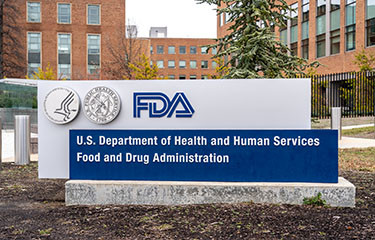After publication, SeafoodSource added information clarifying the recalled scallops are raw, whole, live scallops and not the more popular shucked product.
The U.S. Food and Drug Administration (FDA) is warning restaurants, retailers, and consumers within the states of Illinois, New York, Massachusetts, New Jersey, and Pennsylvania that certain live scallops up for sale were believed to be harvested from a prohibited area in Massachusetts, labeled incorrectly, and should not be served or consumed.
The FDA alert specifically concerns certain live scallops with harvest dates of 26 December and 27 December 2023, as well as 1 January 2024, that Intershell International Corp. harvested from prohibited waters in Massachusetts. The live scallops were incorrectly labeled as harvest location FED 514. Scallops harvested from prohibited waters may contain human pathogens, toxic elements, and poisonous or deleterious substances, which can cause illness if consumed, according to the FDA.
There is a possibility the scallops from Intershell may have been distributed further from the five aforementioned states, the FDA said.
The Fisheries Survival Fund and American Scallop Association later clarified in a release that schucked scallops are still safe to eat, and that the scallops involved with the recall are live scallops – a product form rarely sold in the U.S.
"In the United States and Canada, consumers generally purchase just the adductor muscle, which is the white, meaty part seen in market displays and seafood dishes," a release from the two organizations said.
The organizations added that in North America scallops are not consumed raw often, contrary to the FDA advisory, and that only the abducter muscle is consumed, not the whole scallop.
Illnesses stemming from seafood products remain an issue worldwide.
A recent study, published in the scientific journal Water and prepared for the European Rapid Alert System for Food and Feed (RASFF), listed the top 10 food safety concerns related to seafood consumed globally.
Included in the list were listeria; salmonella; E. coli; vibrio; norovirus; histamine; heavy metal contamination from mercury and cadmium; veterinary product contimation fromnitrofuran, chloramphenicol, and leucomalachite green; temperature control and hygiene problems; parasites such as anisakis; and additives or allergens including sulfites, according to Food Safety News.
It noted listeria was most commonly found in salmon, including in a recent outbreak that spread through Italy, Poland, Denmark, Germany, and Vietnam.
Histamine issues were most common for tuna and sardine products, with issues affecting commerce in Italy, Spain, Morocco, Indonesia, Malaysia, Sri Lanka, and Vietnam.
Anisakis was mainly found in mackerel and hake products. Italy, Spain, and Greece reported food safety issues with anisakis, traced back to products from Croatia, Denmark, France, Norway, Spain, the United Kingdom, and New Zealand.
The study highlighted the importance of regulatory authorities in mitigating harm.
“To minimize or eliminate risks, it is important to have the right activity of control authorities, appropriate legislation at the European and national levels, and awareness at the different stages of the food chain,” the study said.
Photo courtesy of JHVEPhoto/Shutterstock







